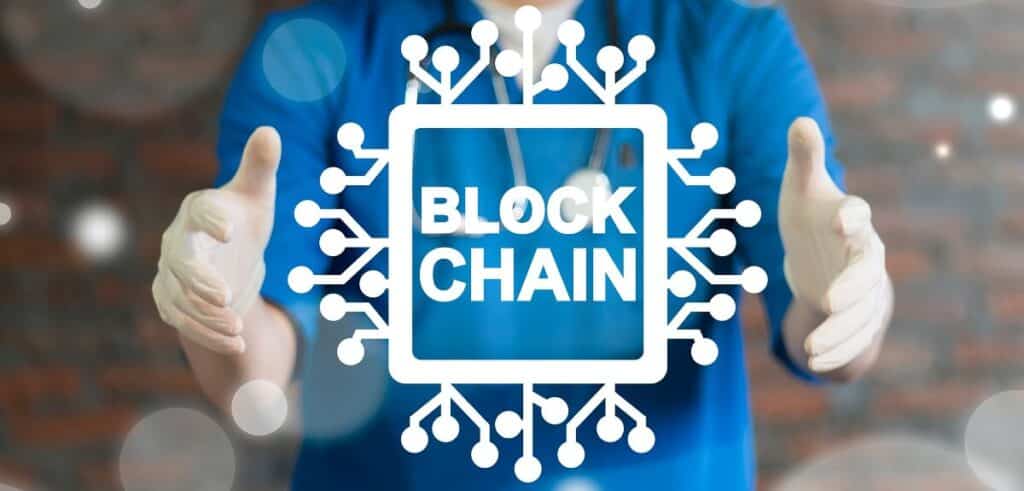Blockchain technology has been making waves in various industries, and healthcare is no exception. With its decentralized and transparent nature, blockchain has the potential to revolutionize the healthcare industry, providing a secure and efficient way of managing health data, improving patient care, and enhancing overall healthcare outcomes. In this article, we will explore how blockchain could be the future of healthcare.
What is Blockchain?
Blockchain is a distributed ledger technology that allows data to be recorded securely, transparently, and tamper-proof. It consists of a chain of blocks, where each block contains a collection of data verified and linked to the previous block, forming a chronological sequence. Once a block is added to the chain, it cannot be altered, ensuring the integrity and immutability of the data stored in the blockchain.
Blockchain technology is known for its unique features, such as decentralization, transparency, security, and consensus mechanism, making it an ideal solution for many applications, including healthcare.
Challenges in Healthcare
The healthcare industry faces numerous challenges regarding data management and patient care. Significant challenges include data security and privacy, interoperability, fraud, and lack of transparency.
Data security and privacy are critical concerns in healthcare, as patient data is often stored in centralized systems vulnerable to cyber-attacks and data breaches. These breaches can compromise sensitive patient information, resulting in financial loss, identity theft, and even endangering patients’ lives.

Interoperability is another challenge in healthcare. Different healthcare providers and systems often use different standards and formats for data exchange, making sharing and accessing patient information difficult. This lack of interoperability can result in fragmented care, medical errors, and delays in treatment.
Fraud is also a prevalent issue in healthcare, with billions of dollars lost each year due to billing, insurance, and prescription drug fraud. These fraudulent activities lead to financial losses and erode patient trust in the healthcare system.
Furthermore, there is a lack of transparency in the healthcare industry, with patients often not having complete visibility into their health data, treatment options, and costs. This lack of clarity can result in patients making uninformed decisions about their healthcare, leading to suboptimal outcomes and increased healthcare costs.
How Can Blockchain Address Healthcare Challenges?
Blockchain can potentially address many of the challenges faced by the healthcare industry. Let’s explore how blockchain can transform the future of healthcare.
1. Enhanced Data Security and Privacy
Blockchain can provide robust data security and privacy by its inherent design. Data stored in a blockchain is encrypted and distributed across multiple nodes in the network, making it difficult for hackers to compromise the data.
Additionally, the immutability feature of blockchain ensures that once data is recorded in a block, it cannot be altered or deleted, providing a tamper-proof record of all transactions. This makes blockchain ideal for securely storing and managing sensitive patient data, such as electronic health records (EHRs), consent forms, and medical research data.
Blockchain can also give patients more control over their data privacy. For example, patients can consent to use their data and monitor who has access to their information. This can help prevent unauthorized access to patient data and give patients greater confidence in sharing their data for research or other purposes.
2. Improved Interoperability
Blockchain can facilitate interoperability in healthcare by providing a standardized and distributed system for data exchange. Since blockchain uses a common data storage and transaction format, it can enable seamless data exchange between healthcare providers and systems. This can result in improved care coordination, reduced medical errors, and more efficient healthcare processes.
Blockchain can also enable the creation of a comprehensive patient health record that includes all relevant medical information from different healthcare providers.
A burning mechanism will control the supply of B-Love tokens. Each month, 10% of the initial supply will be burned. With passive burning monthly, the internal price of B-Love tokens will continue to increase.
B-love Network is a crypto-staking platform designed in a simplified way so that even an amateur in crypto can earn from this platform.
Earning on B-love Network is as easy as tapping the Heart Button Daily.
Three types of rewards can be earned on B-love Network.
- Daily Rewards.
- Direct rewards.
- Associate rewards.
Daily Rewards are dependent on the amount of BLV Tokens Staked. Therefore, the more Blv Tokens staked, the more daily rewards can be earned.
Direct rewards come from a multi-level marketing feature within B-love Network. B-love Network advocates users to refer their friends and family, and by so doing, they earn rewards for every new user that they refer. The more people someone refers to, the more rewards they earn.
The last type of reward is associate rewards. Let’s say you refer two people, who refer two more people; all these people will be under your team and will garner you “associate rewards” The more people you have in your group, the more rewards you will get.
B Love Network has endless earning potential. There is no limit to the amount of BLV tokens you can stake or the number of people you can add to your team.
The price of BLV tokens is constantly increasing. Just last week, it grew in price from $0.02 to $0.03, and there is a high probability that it will see exponential growth.
B-love Token is the perfect opportunity to create a source of passive income. You can earn effortlessly from wherever you are in the world.




